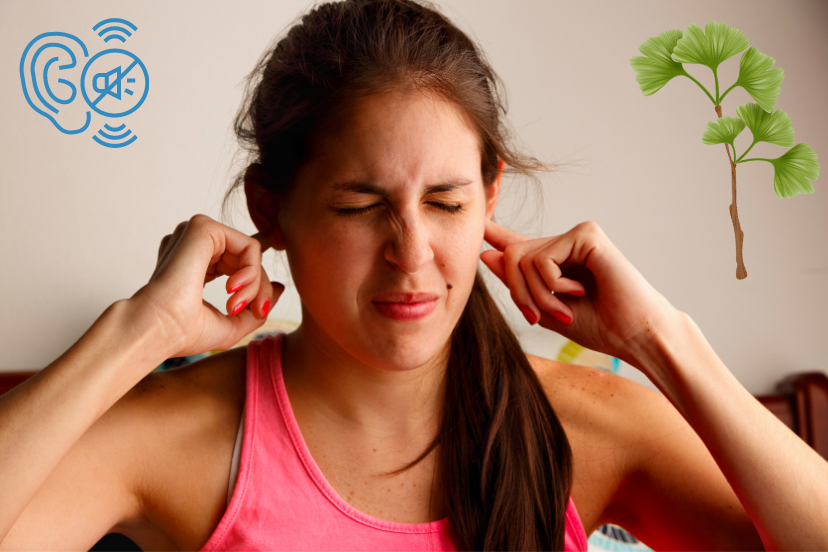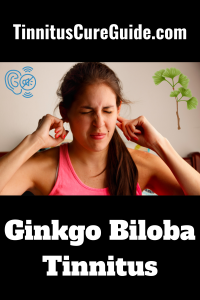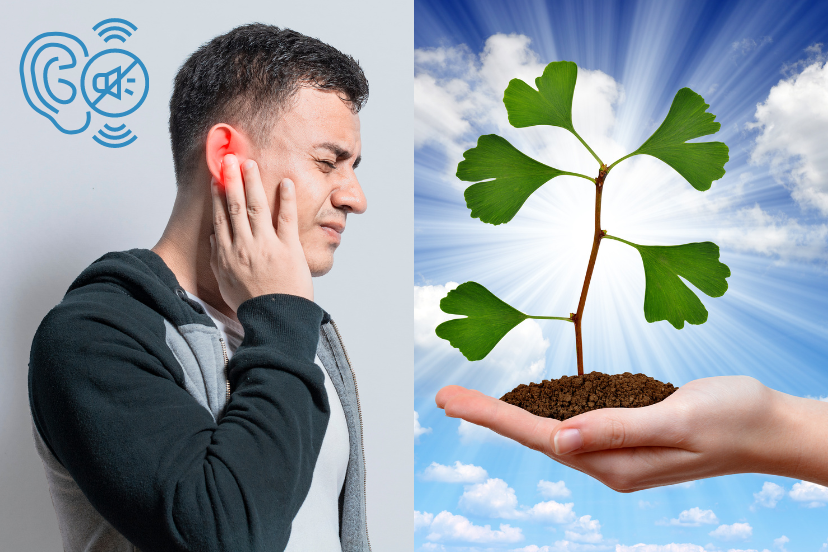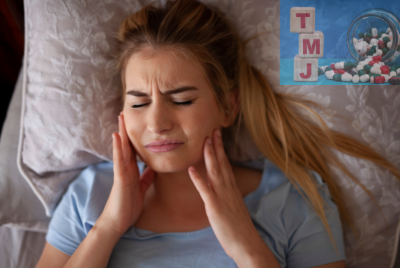Ginkgo Biloba Tinnitus
Exploring Natural Support For Hearing Health
Explore the potential of ginkgo biloba for tinnitus relief. Dive into and learn how this ancient herb might silence the ringing in your ears! As someone who’s passionate about finding holistic ways to support our ears’ well-being, I’m excited to delve into the intriguing topic of Ginkgo biloba and its potential connection to tinnitus. Tinnitus, that persistent ringing or buzzing in the ears, can be a bothersome companion. But fear not, for we’re about to embark on a journey through the world of natural remedies, focusing on the promising benefits of Ginkgo biloba.
Understanding Tinnitus: Causes And Symptoms
Before diving into the realm of Ginkgo biloba, let’s briefly touch upon tinnitus. Imagine sitting in a serene environment, only to be accompanied by the uninvited sound of ringing or hissing in your ears. Tinnitus can stem from various factors, including exposure to loud noises, age-related hearing loss, and even stress. It’s not just a physical sensation; it can also affect your emotional well-being. But fret not, for nature might have a helping hand to offer.
The Link Between Tinnitus And Blood Flow
Before we delve into Ginkgo biloba, discussing blood flow is essential. Ever wonder why tinnitus seems to get worse when you’re stressed? That’s because stress affects blood flow, which is closely linked to this condition.
Ginkgo Biloba For Tinnitus
Ginkgo biloba offers a promising natural remedy for tinnitus sufferers. Its active ingredients improve blood flow to the ears and combat inflammation through its antioxidant properties. While not a guaranteed cure, many people find relief from annoying ear noises by taking a daily dose of this ancient herbal supplement. Always consult your healthcare provider before starting new treatments.
What Is Ginkgo biloba?
Historical Background
So what is this magical plant? Ginkgo biloba is one of the oldest living tree species on Earth, with roots (pun intended!) that go back more than 270 million years!
Active Ingredients And Mechanisms
The leaves of this ancient tree contain active substances like flavonoids and terpenoids. These chemicals have antioxidant properties, which means they fight off damage from free radicals.
The Ginkgo-Tinnitus Connection
Tinnitus Ginkgo Biloba
Tinnitus often disrupts daily life with its incessant ringing or buzzing. Ginkgo biloba can offer relief by enhancing blood flow and reducing inflammation in the ear. This ancient herb’s antioxidants may specifically target the root causes of tinnitus. Though it’s not a surefire cure, taking a daily Ginkgo biloba supplement could make a noticeable difference. Always consult your healthcare provider first.
Scientific Studies And Evidence
Now, you may ask, “Is there any evidence that Ginkgo biloba can help with tinnitus?” Good question! Research is mixed but promising. Some studies have found that ginkgo can help relieve tinnitus symptoms by improving blood flow.
The Power Of Antioxidants
And don’t forget those antioxidants! Antioxidants fight inflammation, another culprit behind tinnitus.
Exploring Ginkgo Biloba’s Potential
Ah, Ginkgo biloba – a tree that’s been around for millions of years and is known for its distinctive fan-shaped leaves. But did you know it’s also been a staple in traditional medicine? Let’s explore how this ancient botanical wonder might hold promise for those seeking relief from tinnitus.
How Ginkgo Biloba May Help With Tinnitus
Improving Blood Circulation
One of the critical ways Ginkgo biloba could potentially aid in tinnitus management is by enhancing blood circulation. Improved blood flow to the ears and surrounding areas might contribute to alleviating the symptoms of tinnitus.
Antioxidant Properties
Ginkgo biloba is renowned for its antioxidant properties. These compounds scavenge harmful free radicals, reducing oxidative stress that could be linked to tinnitus. By combating cellular damage, Ginkgo biloba might play a role in maintaining ear health.
Neuroprotective Effects
The brain is intricately connected to hearing, and Ginkgo biloba is believed to have neuroprotective effects. By supporting brain health, this botanical might indirectly help manage tinnitus, which often involves neural pathways.
Incorporating Ginkgo Biloba Into Your Routine
Now that we’ve uncovered Ginkgo Biloba’s potential, how can you integrate it into your daily life?
Consulting A Healthcare Professional
Before embarking on any supplement journey, it’s crucial to consult a healthcare professional. They can provide personalized guidance based on your health history and any potential interactions.
Recommended Dosage
How Many Mg Of Ginkgo Biloba For Tinnitus?
When incorporating Ginkgo biloba, following the recommended dosage is paramount. Ranging from 120 to 240 mg per day, typically divided into two or three separate doses. This ensures you’re harnessing its benefits in a manageable amount of time.
How To Use Ginkgo Biloba For Tinnitus?
To use Ginkgo biloba for tinnitus, start with a daily dose ranging from 120 to 240 mg, usually split into two or three smaller doses. Choose a high-quality supplement that contains a standardized extract. Consistency matters, so take the supplement regularly for best results. While some people report improvements within weeks, others may need more time. Always monitor for any side effects like nausea or dizziness. Before starting any new supplement, especially if you’re already on medication or have other health conditions, consult your healthcare provider for personalized advice.
Is Ginkgo Biloba Good For Tinnitus?
Ginkgo biloba shows promise as a treatment for tinnitus. Its active components, flavonoids, and terpenoids, enhance blood circulation and exhibit strong antioxidant properties. Improved blood flow can alleviate some symptoms associated with tinnitus, such as ringing or buzzing in the ears. Additionally, antioxidants can counter inflammation, another contributing factor to tinnitus. While not a guaranteed solution, many individuals find relief by incorporating Ginkgo biloba supplements into their daily routine. However, it’s crucial to consult a healthcare provider before starting any new supplement, especially if you’re already on medication.
Does Ginkgo Biloba Help Tinnitus?
Ginkgo biloba does offer potential benefits for tinnitus sufferers. Its active ingredients, like flavonoids and terpenoids, improve blood circulation and combat inflammation, two key factors contributing to tinnitus symptoms. These compounds also possess antioxidant properties, which help neutralize harmful free radicals. Some studies indicate that regular Ginkgo biloba intake can relieve the persistent ringing or buzzing often associated with tinnitus. However, the results are only sometimes conclusive, so it’s best to consult your healthcare provider before incorporating Ginkgo biloba as a supplement, especially if you’re already on other medications.
Ginkgo Biloba Side Effects
Ginkgo biloba is generally safe for most people but can cause some side effects. Common ones include headaches, dizziness, and digestive issues like nausea or diarrhea. Some people might experience allergic reactions characterized by skin rashes or irritation. Additionally, Ginkgo biloba can interact with certain medications, like blood thinners, which increases bleeding risks. If you’re pregnant, nursing, or have liver or kidney conditions, consult your healthcare provider before taking this supplement. Always start with a low dose and monitor for adverse effects as you gradually increase the dosage.
Healthy Lifestyle Habits To Complement Ginkgo Biloba
Ginkgo biloba is undoubtedly fascinating, but remember – it’s not the only player in the game of hearing health.
Balanced Diet And Hydration
Maintaining a well-balanced diet rich in nutrients can fortify your body’s overall health, including your auditory system. Remember hydration’s power; staying adequately hydrated can support optimal ear function.
Reducing Stress And Anxiety
Stress and anxiety can exacerbate tinnitus symptoms. Exploring relaxation techniques like meditation or yoga can be immensely beneficial.
Limiting Exposure To Loud Noises
Prevention is key, and limiting exposure to loud noises – whether from concerts or heavy machinery – can safeguard your ears from potential harm.
Real-Life Experiences And Success Stories
Numerous individuals have shared their success stories of incorporating Ginkgo biloba into their routines. While everyone’s journey is unique, these accounts offer a glimmer of hope and inspiration for those seeking relief from tinnitus.
Other Natural Remedies for Tinnitus
Zinc
Beyond Ginkgo biloba, there are other natural remedies to consider, like zinc. A zinc deficiency can exacerbate tinnitus, so it’s something to consider. Zinc supplements may help alleviate tinnitus symptoms, especially if you have a zinc deficiency. This essential mineral plays a role in cell metabolism and nerve function. Please consult your healthcare provider for proper dosage and ensure it suits you.
Acupuncture
Ever tried acupuncture? Some people swear by it to relieve tinnitus symptoms. Acupuncture can relieve tinnitus symptoms by targeting specific points that affect inner ear circulation and nerve function. This ancient Chinese practice aims to restore balance in the body, potentially reducing the persistent ringing or buzzing. Consult a certified acupuncturist and your healthcare provider for personalized advice.
Best Herbs For Tinnitus
Several herbs show promise in alleviating tinnitus symptoms. Ginkgo biloba stands out for improving blood flow and reducing inflammation. Black cohosh may also help, especially for tinnitus related to hormonal changes. Garlic, rich in allicin, possesses anti-inflammatory properties that can be beneficial. Although not an herb, zinc or GABA supplements can be effective if a zinc deficiency exacerbates your symptoms. Finally, Turmeric’s active ingredient, curcumin, has potent anti-inflammatory and antioxidant effects. Before trying any herbal remedies, consult your healthcare provider, especially if you’re already taking other medications.
What Supplement Is Best For Tinnitus?
The best supplement for tinnitus can vary depending on individual needs, but Ginkgo biloba often tops the list for its potential to improve blood circulation and reduce inflammation. Zinc supplements also come highly recommended, especially if you have a zinc deficiency. Other options include magnesium, which helps with nerve function, and B vitamins, known for their role in cellular metabolism. It’s crucial to consult your healthcare provider for personalized recommendations, particularly if you’re already taking other medications, to avoid any adverse interactions.
Ginkgo Biloba For Hearing Loss
Ginkgo biloba offers potential benefits for those experiencing hearing loss. Its active ingredients, primarily flavonoids and terpenoids, improve blood circulation to the inner ear. Better blood flow can enhance auditory functioning and partially restore hearing loss caused by poor circulation or age-related decline. Ginkgo biloba also has antioxidant properties, which help combat oxidative stress, contributing to hearing impairment. However, it’s not a guaranteed cure for hearing loss, and its effectiveness varies from person to person. Always consult your healthcare provider before starting a Ginkgo biloba supplement, especially if you’re on other medications.
Ginkgo Biloba Cured My Tinnitus

I struggled with tinnitus for years, the constant ringing in my ears affecting my focus and sleep. After researching natural remedies, I decided to try Ginkgo biloba. To my surprise, it made a significant impact! I took a daily dosage of 240 mg, broken down into three smaller doses throughout the day. Within weeks, I noticed the ringing had subsided considerably. After three months, it was almost entirely gone. Ginkgo Biloba’s active ingredients, flavonoids and terpenoids, are known for improving blood circulation and reducing inflammation, contributing to tinnitus. I must stress, however, that while Ginkgo biloba worked wonders for me, individual results can vary. Always consult your healthcare provider before starting any new supplement, especially if you’re on other medications.
How Long Does It Take Ginkgo To Help Tinnitus?
The time it takes for Ginkgo biloba to help with tinnitus can vary from person to person. Generally, you might notice improvements within a few weeks of consistent use. Some people report relief after two to three months of taking the supplement daily. Sticking to the recommended dosage, usually between 120 and 240 mg per day, is essential, divided into two or three doses. If you are still waiting to observe any change after a few months, consult your healthcare provider for further guidance. Always monitor for any potential side effects during this period.
Which Ginkgo Biloba Is Best For Tinnitus?
When choosing Ginkgo biloba for tinnitus, opt for a high-quality, standardized extract. A standardized product ensures you get a consistent level of the herb’s active ingredients, usually flavonoids and terpenoids. Look for supplements containing at least 24% flavone glycosides and 6% terpene lactones, which are the most often studied for effectiveness. Brands that offer third-party testing for purity and potency can also provide an extra layer of assurance. Before purchasing, consult your healthcare provider for personalized advice, especially if you’re already taking other medications.
The Verdict: Is Ginkgo Biloba Worth a Try?
In summary, while it may not be a magic cure, Ginkgo biloba does show promise as a natural remedy for tinnitus.
Frequently Asked Questions (FAQs)
Is Ginkgo biloba a guaranteed cure for tinnitus?
While Ginkgo biloba shows promise in supporting tinnitus management, individual responses vary. It’s advisable to approach it as part of a holistic approach to hearing health.
Can I take Ginkgo biloba with other medications?
It’s essential to consult your healthcare provider before combining any supplements, including Ginkgo biloba, with medications to avoid potential interactions.
How long does it take to see results with Ginkgo biloba?
Results aren’t instantaneous. Consistency is key. It might take several weeks to months to notice any changes. Patience is your ally.
Are there any age restrictions for using Ginkgo biloba?
Ginkgo biloba supplements are generally considered safe for adults. However, discussing its use with a healthcare professional is wise, especially for older adults.
What should I do if I experience any adverse effects?
If you encounter any unexpected side effects while taking Ginkgo biloba, cease usage and consult your healthcare provider promptly.
Extra FAQs Related To Ginkgo Biloba Tinnitus
How much ginkgo biloba should I take for tinnitus?
Consider taking 120 to 240 mg of Ginkgo biloba daily for tinnitus relief, divided into two or three doses. Consistency is key to effective results. Always consult your healthcare provider for personalized advice, especially if you’re on other medications.
Is Ginkgo biloba safe to use for tinnitus?
Ginkgo biloba is generally considered safe for treating tinnitus for most people. However, it can cause side effects like headaches or digestive issues and interact with certain medications. Always consult your healthcare provider before starting any new supplement regimen.
Are there other natural remedies for tinnitus?
Besides Ginkgo biloba, other natural remedies for tinnitus include zinc supplements, garlic, and black cohosh. Some people also find relief with acupuncture or mindfulness techniques. Always consult your healthcare provider before starting any new treatment, especially if you’re on other medications.
How long does it take for Ginkgo biloba to work?
The time Ginkgo biloba takes to show effects can vary. Some people notice improvements within a few weeks, while others may need up to three months. Consistency and proper dosage are key. Consult your healthcare provider for personalized guidance.
Where can I buy Ginkgo biloba?
Most health food stores and online platforms offer various Ginkgo biloba supplements.
Conclusion: A Harmonious Blend Of Nature And Nurture For Tinnitus
As we conclude our exploration of Ginkgo Biloba’s potential in tinnitus, it’s evident that nature has given us a treasure trove of possibilities. While Ginkgo biloba might not be a one-size-fits-all solution, its rich history and promising properties make it a fascinating avenue to explore for those on their journey to better hearing health.
Disclaimer
This article is for informational purposes only and does not substitute professional medical advice. Always consult a licensed healthcare provider before beginning new treatments, supplements, or exercise programs for tinnitus or related conditions.






